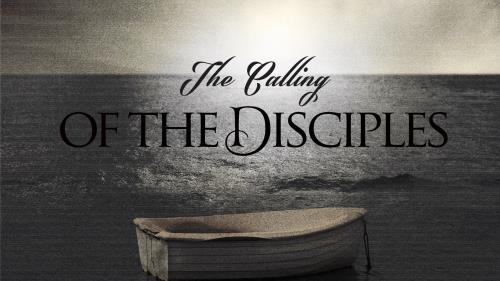-
Discernable Differences For Disciples Series
Contributed by Monty Newton on Nov 28, 2017 (message contributor)
Summary: Followers of Christ respond when he calls, corrects and commissions them.
Title: Discernable Differences for Disciples
Texts: Mark 1:16-20, 9:33-37 and 16:14-16
Thesis: Followers of Christ respond when he calls, corrects, and commissions them.
Series: The Bible in 90 Day Whole Church Challenge
Introduction
A disconnect exists when there is a gap between our claims of being followers of Christ and the actual outliving of that claim.
Dallas Willard cited that disconnect when wrote in his book, The Divine Conspiracy, “The Lord is my Shepherd” is written on many more tombstones than lives.
George Barna…has been surveying American evangelicals to see if we practice what we preach. He is finding that we don’t preach doctrine from the Bible, and therefore don’t practice differently from the world. For example, he says that evangelicals divorce at about the same rate as the nation at large. Only 9 percent of evangelicals tithe. Of 12,000 teenagers who took the pledge to wait for marriage, 80 percent had sex outside marriage in the next seven years. Twenty-six percent of traditional evangelicals do not think premarital sex is wrong. White evangelicals are more likely than Catholics and mainline Protestants to object to having black neighbors.
According to Mr. Barna’s definition, an "evangelical" is willing to say, "I have made a personal commitment to Jesus Christ that is still important in my life today." In addition, evangelicals agree with several other things like: Jesus lived a sinless life; eternal salvation is only through grace, not works; Christians have a personal responsibility to evangelize non-Christians; Satan exists. Mr. Barna says that 7 percent to 8 percent of the U.S. population is in this group. And they do not live very differently than the world. (John Piper, “The Doctrine Difference,” World Magazine (3-5-05) p. 5)
It would seem that there ought to be a way of discerning a person’s commitment to Christ. Jesus addressed the issue in Luke 6:46 when he asked, “Why do you call me Lord and not do what I command?” How can you tell if you are genuinely a follower of Christ who calls him “Lord” and does what he says?
Probably the first underlying question has to do with your initial response to Christ’s invitation to follow him.
I. When he calls, you follow.
As Jesus walked beside the Sea of Galilee, he saw Simon and his brother Andrew casting a net into the lake, for they were fishermen. “Come, follow me,” Jesus said, “and I will make you fishers of men.” At once they left their nets and followed him. Mark 1:16-20
In our story Jesus is walking along the shore of the Sea of Galilee. Imagine any port city with its marinas, docks, wharfs and maybe even fish markets. When Jesus happened upon Simon and Andrew they were probably standing knee deep out in the lake fishing with a draw net. A little further along he happened upon James and John who were in their fishing boat working on their nets.
The Discovery Channel reports that in 2009 American Chopper and Deadliest Catch are the two most highly-rated series. Deadliest Catch documents the crab fishing industry off the coast of Alaska in the icy Berring Sea where fishermen work at one of the world’s most dangerous jobs. Those crab fishermen are among the craziest, crustiest, crudest and hardest working men on the planet.
Jesus did not just happen upon some namby pamby guys playing croquet on an exclusive Lake Side Country Club lawn. Additionally, they were not Christians. They had not repented of their sins and received Jesus into their hearts when Jesus called out to them, inviting them to “Come, follow me.”
Whenever we fly in an airplane there is a critical moment. As the airplane accelerates toward the end of the runway, the pilot must decide if the plane is moving fast enough for a safe takeoff. This speed must be determined preflight based on several factors, including the air pressure, temperature, speed of the wind, and weight of the aircraft.
The pilot maintains a hold on the throttle as the plane approaches what they call, V1 speed, so that he or she can abort the takeoff if something goes wrong. However, after V1, the plane must take off.
As Christians, we have a V1 commitment to our walk with Christ. Once we have placed our faith in Christ alone, we have reached the point of no return. (Mike Silva, Would You Like Fries With That? Word, 2005)
There was that moment in the minds of Simon, Andrew, James and John when they could have aborted the take-off. There is a critical moment for each of us when we hear the call to follow… we are accelerating down the runway, so to speak, and at some point we have to decide if we are going to fly or throttle back, drop the flaps, apply the brakes and return to the gate.

 Sermon Central
Sermon Central



